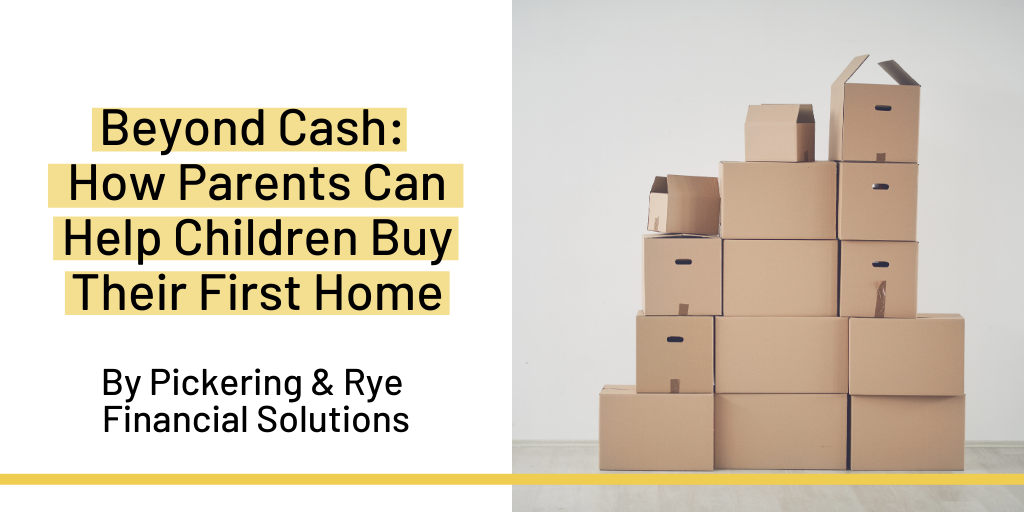Content provided by Pickering and Rye
Contact Pickering and Rye here
Older generations looking to give their children or grandchildren a boost onto the property ladder don’t need to drain their retirement pot.
Do you know who the UK’s eleventh biggest mortgage lender is, currently dominating a large chunk of the market? You might be surprised to learn it’s not a major financial institution – it’s the so-called ‘Bank of Mum and Dad’. Parents in the UK were expected to lend a hefty £6.3 billion towards helping their children get on to the property ladder in 2019, according to Legal & General – with the average contribution at £24,100, rising to £31,000 in London. For many younger people battling stagnant salaries and soaring house prices, help from older generations is the only way to purchase a property. UK house prices have soared by 42% in the last ten years, while average earnings have risen by just 17%.
Eager to help
The most obvious way for parents and grandparents to help their child or grandchild buy their first home is to gift a sum of money towards a deposit. But Paul Johnson, Client Banking and Mortgage Manager at St. James’s place, warns of the risks involved in handing over large amounts of money. “We’re finding that some parents are delaying their retirement, or cashing in pension pots and using the tax-free cash from their pension to help their children, when they shouldn’t be,” he says. “Parents who do this may risk impacting their own retirement plans.”
Also, while there may be no immediate implications from gifting, any large amount could be subject to Inheritance Tax (IHT) if the parent dies within seven years of making the gift. Meanwhile, rising life expectancy means that retirement pots have to last longer than ever. “Giving a large chunk of money often isn’t the best way to help,” Johnson adds. “Especially since there are various other options that can be explored.”
Alternatives to gifting
There are other ways to help – intergenerational mortgages, for example -that take into account parents’ or grandparents’ finances and don’t require them to hand over large amounts of cash. Parents may jointly apply for a mortgage with their younger relative, so their income is included in the lender’s assessment and will increase the child’s borrowing potential, Johnson says. In this case, it’s vital to consider the legal and tax implications. In a joint borrower sole proprietor arrangement, the older relatives will not be named on the property ownership deeds, meaning they will not be liable for the Stamp Duty surcharge on the purchase, nor Capital Gains Tax when the property is sold.
Or it may be that the best option is for a parent or grandparent to use a portion of their savings to reduce the homebuyer’s repayments and secure the mortgage. “A parent’s savings may be deposited into an account that sits alongside the mortgage to reduce the repayments, for example, by lowering the interest rate payable,” says Johnson. These family offset accounts are a good solution when an older relative wants to help, but does not want to gift money they may later need themselves. In both cases, the older generation keeps ownership of their investments and savings – and the ability to benefit from them in the future. However, terms and conditions apply, so independent legal advice should be sought.
There are other arrangements available where, for example, a parent can use their own property as security to help young relatives. These guarantor mortgages come with their own risks, however – notably that, should a child miss their monthly mortgage payments, a lender could potentially force the parent to sell their own home.
If you’re a parent or grandparent looking to help a younger relative buy a property, then it’s crucial that you take legal and financial advice before you enter into any type of contract. A St. James’s Place Partner can help you to understand your options – and advise on the range of family assistance mortgages available, while managing the application process from start to finish.
Your home may be repossessed if you do not keep up repayments on your mortgage.
The levels and bases of taxation, and reliefs from taxation, can change at any time and are dependent on individual circumstances.
1.Bank of Mum and Dad, Legal & General, 2019
2.House price to workplace-based earnings ratio, Office for National
Statistics, March 2020

